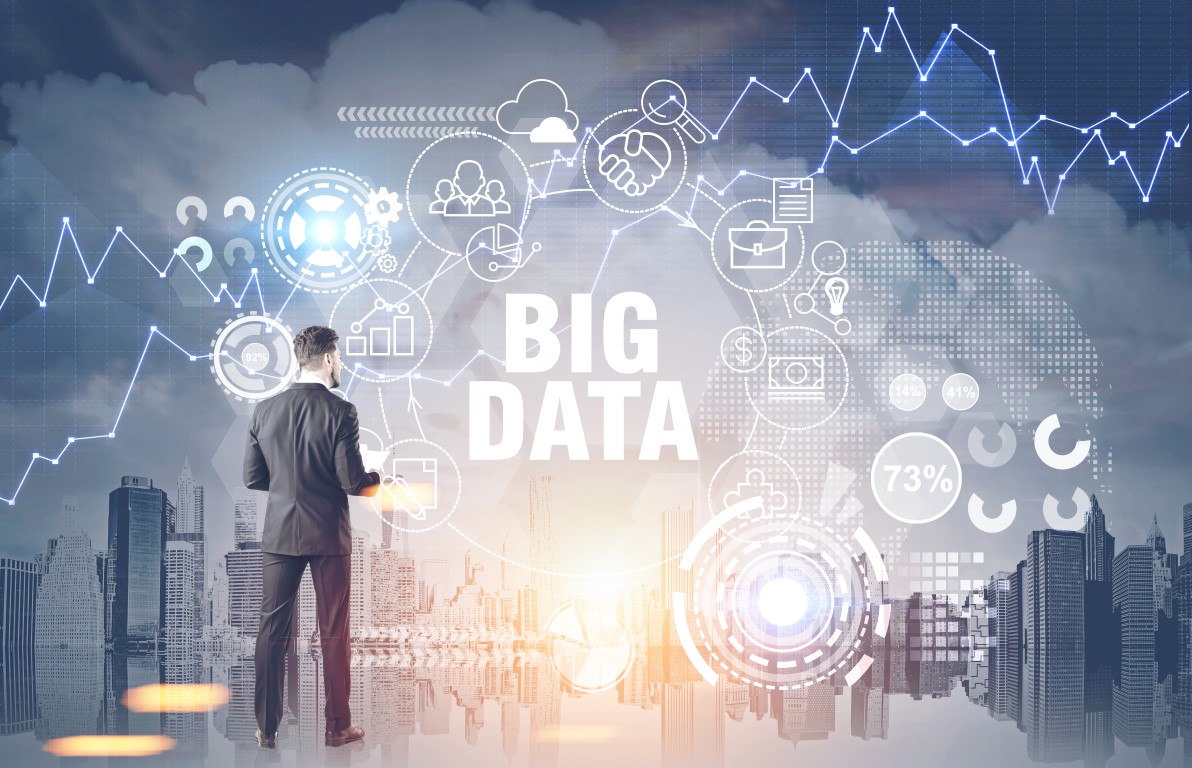Our results have been applied to industrial and business sectors such as Financial Services, Maritime Industry, Defense Industry, Health, Energy and Large-Scale Sports Events.

Discover our capabilities
Our team brings together experts with in-depth knowledge in the fields of Software & Requirements Engineering, Conceptual and Enterprise Modelling, Enterprise Architectures, Big Data Analytics and the Internet of Things.
Requirements Specification & Analysis
Arguably the most sensitive process in the development of any type of system and especially digital systems, that nowadays become the foundations of enterprise transformation, is that of capturing requirements from domain experts such that their business goals are satisfied, their expectations about the qualities of the delivered system are met and the system is delivered on-time and within budget.
Strategic decisions taken at this stage have a profound effect on the technical and economic feasibility of every project. Typical decisions include the likely demand for product or service, the level of desirable service that the business process should strive to achieve, the resources required in order to achieve these levels of service, the trade-off between levels of service and requisite resource, etc. Once these strategic issues at enterprise level and their impact on operations have been analysed attention is turned to developing specifications of requirements for technical systems.
IDIR experts have been involved, for over 30 years in leading edge research and practice in Requirements Engineering. Our state-of-the-art methodology known as e-CORE (standing for early-Capability Oriented Requirements Engineering) employs a set of complimentary and intertwined modelling paradigms based on enterprise capabilities, goals, actors, and information objects. The methodology has a well-defined process and detailed activities supported by software tools that provide both users and developers the basis for a full analysis of the consequences of alternative transformation scenarios.
IDIR has been engaged in a large number of projects, for both large corporations and SMEs, in many sectors including Manufacturing, Finance, Health Care, Energy and Large-Scale Sports Events.
System Dynamics
Enterprise transformation requires adaptability of services in accordance with the dynamism in their ecosystem. The most notable characteristic of agile enterprises is the ability of dynamic decision-making. To achieve this, enterprises need to develop a digital infrastructure, providing the means for quickly getting valuable information to the people who need it. New scalable service delivery platforms, such as cloud computing, Internet of Things, the expanding utilization of data capture and sensing technologies, are some examples that demand now more than ever new ways for dealing with agility, adjustment and alignment, properties that give rise to systemic interconnectivity.
This interconnectivity demands for a methodological approach that is capable to deal with dynamic complexity of systems in order to understand the implications of their interconnected components.
IDIR deploys the well-established approach of System Dynamics that enables one to examine a system’s behaviour to understand how a change in one part of the system can propagate to all other parts and to visualise any unanticipated impact. Using visual languages, underpinned by mathematical theory, we develop models that are subjected to simulation and thus develop scenarios to encourage group brainstorming through which participants could focus on alternative solutions and to envision potential behaviour of the system prior to its implementation.
Cyber Security & Data Protection
Although the privacy and personal data protection and the relevant needs for compliance with regulations have been at the forefront of the EU data economy market over several years, there is a perceived lack of easily usable tools to help especially SMEs/MEs, which still face multiple challenges related to data protection and GDPR compliance. Combined with the complexity introduced by data privacy, security, portability and governance requirements, the need for robust SME/ME-specific support measures are obvious and warranted. Although huge amounts are being spent by such enterprises to secure their data and achieve compliance, most of them remain unprotected both from data breaches/cyberthreats and the fines that may result from a lack of compliance.
IDIR is thus currently involved in the development of technological innovations which allow smaller enterprises to tap advanced cybersecurity capabilities, without allocating excessive financial or human resources. These innovations facilitate a digitally-assisted assessment of their current privacy and data protection risks, the drafting and enforcing of a unified GDPR-compliant privacy and data protection policy addressing the identified gaps; and, eventually, collecting, analysing and sharing critical privacy incident or data breach information over open-access platforms to facilitate both reporting to DPAs and responding faster to privacy-related threats.
Big Data applications
The term Big Data is increasingly present in the development of software applications and services on different application areas such as health or digital economy. The term is usually associated with technological concerns, related to solutions that manage and physically store big volumes of data. This interpretation has caused a proliferation of isolated Big Data technological solutions, generating a huge data chaos. However, a high quality technological infrastructure is not enough if it lacks the suitable mechanisms to organize and extract value from the stored data. This is not just a big data problem. The data that come from these “data lakes” and that are really relevant to understand and manage a given domain, conform those Smart/Master Data that are much shorter in volume than the original ones. Solutions to move from the Big Data perspective to the pragmatic Small / Master Data view must be provided, in order to interpret and exploit data correctly, while inferring new knowledge to better understand the complex domain where those data come from,
In this context, one area in which we have been involved is in analysing, formalising and solving conceptual and methodological challenges that arise while developing applications and services based on Big Data in industrial environments. Starting from a foundational ontology that describes a complex domain without ambiguities and applying conceptual model-driven software development (MDSD) principles, we propose a conceptual model-driven method for developing Big Data applications. The goal is defining precise and rigorous conceptual models that drive the development of Big Data applications and services in order to provide business value, identifying precisely the “Smart” data that are really relevant to understand and manage a selected complex domain where the Big Data are generated.
We have been engaged in pioneering work in the design and development of a Big Data application for the management of genomic data generated by several organizations. Identifying the Smart Data in this case means to accumulate more and more distilled genome knowledge while the amount of data to be analysed increases continuously due to the advances in DNA sequencing technologies. As more and more data become available, the need for identifying the right conceptual patterns that should guide the process of understanding how the genome works, will open possibilities never before available to humanity. Understanding the genome represents a disruptive civilizational change, where for the first time in history we can explore answers never before considered under our human scope, with potentially profound impact on applications in the domain of health (medicine of precision).
Next generation Internet-of-Everything
The Internet of Things (IoT) connects embedded devices, sensors and actuators to the Internet. Estimations show that around 50 billion devices and people will be connected to the Internet in 2020, creating the “Internet of Everything” (IoE).
Novel applications ranging from autonomous driving, over smart cities, to health care, that improve the quality of human life will be enabled by IoE. Common to these IoE applications is the collection of sensor information, the control of actuators as well as time-critical communication and control tasks. The gathering and processing of all the data acquired by those devices will result in an increase of data aggregation devices, which need to adapt to their environment. Hence, the architecture for such systems must be designed in an organized, scalable, and efficient way that ultimately leads to a seamless deployment of IoE applications on a generic platform.
The IDIR team undertakes research in the IoE domain, in the following specific areas:
- IoE applications, design and development
- Network virtualization
- IoE service orchestration
- IoE management infrastructures and functionalities
Technologies for Smart Factories
The factories of the future need to deal with competitive pressures and incorporate new technologies, applications and services. Digital industrial platforms address this need by providing the means to integrate different technologies, take data from the shop floor and the supply network, make it accessible to monitoring and control applications, and allow the development of complementary applications.
Data plays a key role in this transformation, but also poses significant challenges. Manufacturing facilities will need to be digitally connected with external partners in the value chain, so it is important to guarantee an adequate level of security without limiting the capability to exchange data and information both on the manufacturing floor and beyond the factory.
IDIR identifies several challenges in the sector, including privacy, security, dependability, cognitive abilities, user interaction, ubiquity, robust connectivity, governance and, of course, the need to provide quality of service. The smart factory of the future is connected, with connected mobility, smart cities, connected industry, connected enterprise and connected life. Our research in the field focuses on:
- Secure Data Fusion & Integration in Cyber-Physical Systems
- Smart Grids and Next-Gen Electricity Distribution
- Energy-Aware Infrastructure
- Industrial Control Systems and Robotics





